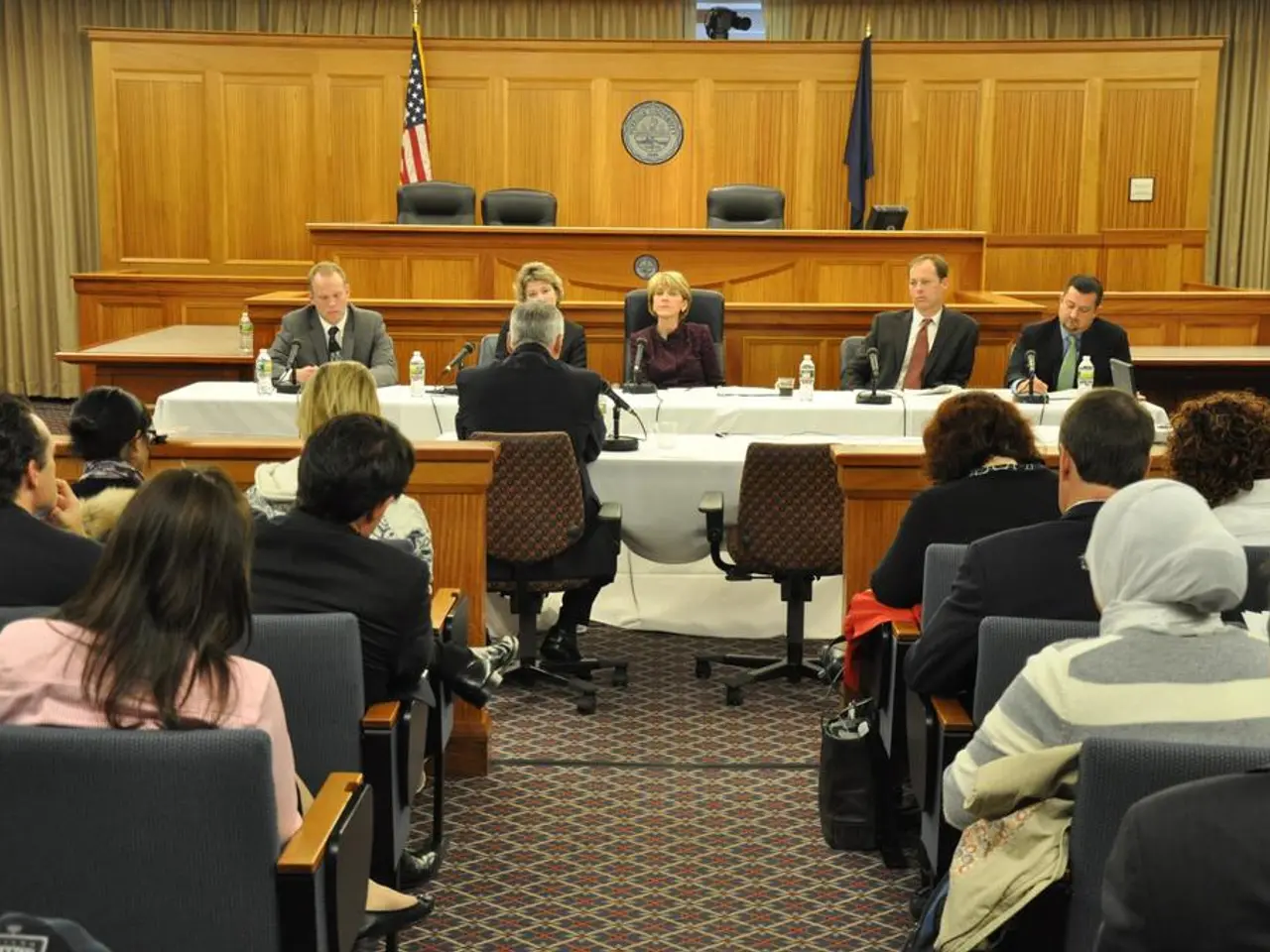Power Transfer at Summit Coalition: Could Complete Dismantling be Imminent?
The black-red coalition government, comprising the CDU/CSU and SPD, is navigating a complex economic landscape as they strive to achieve ambitious investment goals while managing fiscal constraints and social priorities. Key areas of focus include electricity tax, citizens' allowance, and the pension package.
## Electricity Tax and Energy Policy
The government is under pressure to ensure affordable and sustainable energy, necessitating substantial investments in infrastructure and a shift towards clean energy. However, balancing taxation is crucial to avoid overburdening households and industry, similar to issues faced by other European nations where high electricity taxes can hinder electrification and industry competitiveness.
Fiscal space has been expanded with the current reform of the debt brake, providing additional room for investment in energy transition. Nevertheless, concerns persist about the long-term sustainability of high public debt and the need for a coherent tax policy that supports climate targets without harming economic growth.
## Citizens’ Allowance (Bürgergeld)
The government must find a balance between maintaining social support for vulnerable groups and implementing austerity measures. With increasing defense spending and other priorities, debates about reducing or restructuring social spending are ongoing. Budget constraints, due to historically high new debt and rising public expenditures, could put pressure on social budgets.
## Pension Package
The government faces ongoing challenges from an aging population, necessitating reforms to ensure the sustainability of the pension system. Financing pension promises involves either raising contributions, increasing taxes, or further increasing public debt. With the government already planning to increase overall debt to fund strategic priorities, there is a risk of crowding out resources needed for pension reforms or increasing intergenerational fiscal burdens.
## Summary
| Policy Area | Main Issues | Coalition Challenges | |---------------------|-----------------------------------------------------------------------------|--------------------------------------------| | Electricity Tax | Balancing taxation for affordability, industry, and climate goals | Need for sustainable, coherent tax policy | | Citizens’ Allowance | Maintaining social support amid rising debt and defense spending | Budget constraints, social vs. fiscal aims | | Pension Package | Ensuring system sustainability amid demographic change | Funding pressure, debt sustainability |
## Broader Fiscal Context
The government’s ambitious plans are being funded by historically high new debt, enabled by the recent reform of the debt brake. The combination of financing mechanisms has led to a departure from previous German austerity policy. There is a clear tension between investing in critical infrastructure and defense, and maintaining robust social safety nets, as evidenced by cuts to development aid and concerns about future social spending.
## Conclusion
The black-red coalition faces complex trade-offs: ensuring affordable energy through balanced taxation, maintaining social protections under budget pressure, and securing pensions amid demographic shifts, all while managing unprecedented public debt and shifting fiscal rules. Success will depend on balancing these competing priorities in a politically and economically sustainable way.
Key decisions include the proposed reduction in the electricity tax for all consumers, which would cost an additional 5.4 billion euros next year, and the potential tightening of sanctions and a fundamental reform of the citizens' allowance. The electricity tax reduction for industry, agriculture, and forestry is planned to be made permanent. The black-red government coalition is facing its first major domestic political test.
- As the black-red coalition government expands fiscal space for investment through the reform of the debt brake, they must formulate a coherent tax policy that balances electricity tax regulations to ensure affordable and sustainable energy, without overburdening households and industry or hindering economic growth.
- In the realm of business and social policy, the government is tasked with finding a balance between implementing austerity measures to manage fiscal constraints and maintaining support for vulnerable groups, especially when it comes to the citizens' allowance, while also considering the potential long-term sustainability of high public debt.
- In addressing the pension package, the black-red coalition government must reform the pension system to ensure its sustainability amid an aging population, considering funding options such as raising contributions, increasing taxes, or further expanding public debt, mindful of the potential risks associated with increased intergenerational fiscal burdens.





